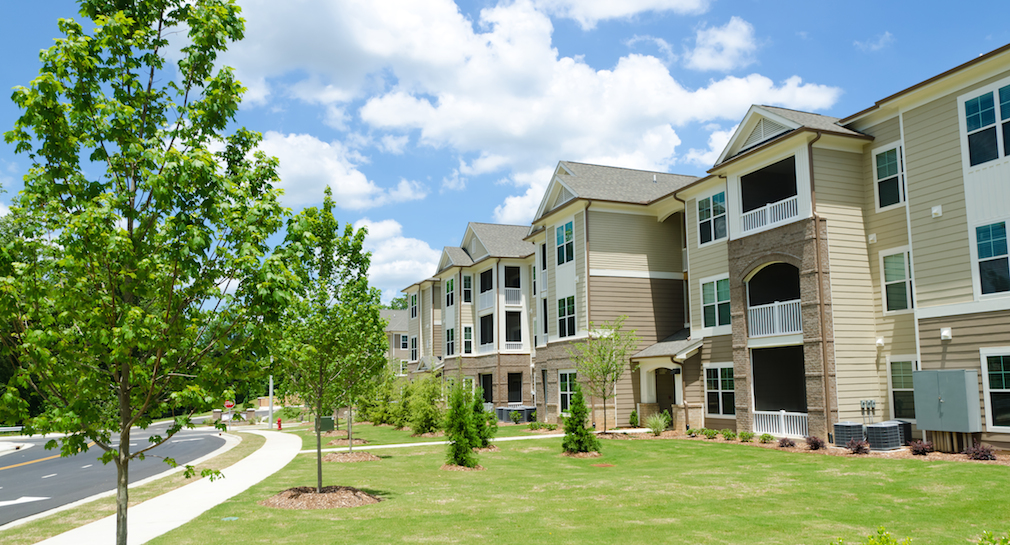Everything is going swimmingly in multifamily real estate these days, right? Rents keep rising, construction is still chugging along, deals are being made, and delinquencies are still at historic lows. So everything’s good, right? Maybe not.
It appears there could a deep, dark secret at the core of multifamily lending that could destroy the market. And in a truly sad bit of irony, the secret could be very similar to the one that crushed the single-family housing market 10 years ago.
Fake residents, fake incomes, and inflated mortgages. Sound familiar?
The details of all of this come courtesy of a blockbuster report released this week by the Wall Street Journal.
The report details how the Federal Bureau of Investigation, the Department of Justice, and the Office of the Inspector General for the Federal Housing Finance Agency are in the middle of an investigation that the WSJ calls “one of the biggest mortgage-fraud probes since the financial crisis.”
The whole WSJ article is definitely worth reading (if you have a subscription, that is), as the article extensively details some pretty brazen fraud allegations involving the loans backing approximately $1.5 billion in mortgage securities issued by Fannie Mae and Freddie Mac.
From the WSJ article:
Owners of an apartment complex near Pittsburgh, who wanted to take out a mortgage on the buildings, allegedly made vacant units look occupied by turning on radios, placing shoes and mats outside doors and in one instance having a woman tell inspectors her boyfriend was asleep inside.
The owners obtained a $45.8 million loan, which was wrapped into mortgage securities and sold to investors.
Practices such as these—which were alleged in a federal search-warrant application—have sparked one of the largest mortgage-fraud investigations since the financial crisis. It focuses on whether income from commercial properties was falsified, a move that would enable owners to get larger mortgages and take out cash or expand their businesses faster.
According to the article, the investigation has already led to an indictment against four individuals for allegedly conspiring to falsify loan information in order to obtain more than $167 million in multifamily loans.
The indictments, which were disclosed earlier this summer, allege that Frank Giacobbe, Patrick Ogiony, Kevin Morgan, and Todd Morgan conspired to defraud Fannie Mae, Freddie Mac, Arbor Commercial Mortgage, and Berkadia Commercial Mortgage by faking much of the information that the lenders and government-sponsored enterprises count on when issuing or buying the mortgages.
According to the DOJ, the four men stand accused of:
- Conspiring to provide lending institutions with false rent rolls suggesting that properties had more occupied units, at higher rental rates, and generated more income than they, in fact, did
- Conspiring to provide false information about other income received at the complexes. On one occasion, when one defendant asked another where storage space income figures came from, another defendant replied, “Magic”
- Conspiring to provide lenders with fraudulently altered leases
- Conspiring to prevent inspectors touring the properties from discovering vacant units by, among other things, turning on radios inside vacant units, placing mats and shoes outside apartment doors, and, on at least one occasion, hiring someone to stage an apartment as lived in and pretend to be a tenant of an inspected unit
The apartments in question are located in New York and Pennsylvania.
“The defendants are charged with fraudulently obtaining over $167.5 million worth of loans relating to seven residential apartment complexes located here in New York and in Pennsylvania,” U.S. Attorney James Kennedy said back in May when the charges were announced.
“Most of those loans were in turn sold to Fannie Mae or Freddie Mac, entities which were created by Congress to perform and an important role in our country’s housing finance system,” Kennedy continued. “As a result of the fraudulent conduct alleged in this indictment, defendants’ conduct not only unjustly enriched them but threatened to undercut the very foundations upon which our mortgage banking and investment systems are based.”
But, according to the WSJ piece, those allegations are just the tip of the iceberg.
Two of the men charged are related to Robert Morgan, the owner of the properties in question. The other men supposedly worked at Aurora Capital Advisors and acted as the mortgage brokers on the deals in question.
According to the WSJ report, Morgan has nearly tripled his company’s apartment holdings since 2010, and with that growth, came some allegedly questionable practices.
Again from the WSJ:
The rapid growth was aided by practices such as creating spreadsheets filled with fake income figures for properties, according to the indictment, returned May 22 in federal court in Buffalo, which charged two executives of his firm. Such conduct “occurred across” the company’s real-estate portfolio, according to a federal search-warrant application for the executives’ emails.
It was at a Morgan property north of Pittsburgh called Rochester Village that the federal indictment alleged the faking of apartment occupancy via radios playing in vacant units. In addition, an executive anticipating an inspection of one building asked a property manager to have employees park their cars in its garage, according to the search-warrant application. The indictment alleged an effort to report apartments as occupied before they even had town occupancy permits.
Deutsche Bank AG had just backed out of a deal to finance the 228-unit property, suspecting its occupancy was misrepresented, according to the document. The owner then obtained a loan via Berkadia Commercial Mortgage LLC, which sold the loan to Freddie Mac.
According to the WSJ report, the probe could grow beyond Morgan’s company to include some of Morgan’s business acquaintances and other Aurora clients.
Again, go read the full WSJ report (if you can), which details how much bigger this scandal could get.
Will this investigation be the canary in the coal mine, the first step to showing that there’s much more fraud going on in the multifamily industry than it appears? Or will the issue be isolated and contained?
Only time will tell. Buckle up.






